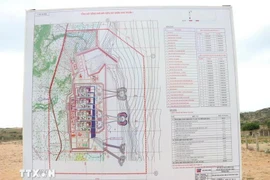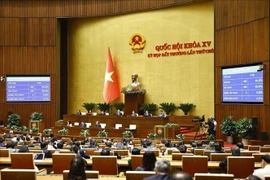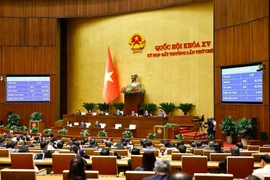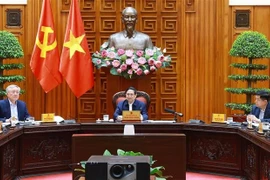Hanoi (VNA) – Relevant authorities are working hard to finalise the amended Law on Atomic Energy and promote international cooperation on nuclear safety, security, and safeguards, making it ready for developing the Centre for Nuclear Energy Science & Technology (CNEST) and nuclear power plant projects.
Actively joining international nuclear conventions
Developing nuclear power is almost the only technology that must fully comply with international supervision and cooperation regulations, particularly in nuclear safety, security, and safeguards - an effective mechanism to ensure the safe, secure, and responsible operation of nuclear power plants and their integration into the national grid.
Therefore, Vietnam, like other first-time nuclear power developers, needs to fully participate in international treaties on nuclear development, experts said.
According to Prof. Pham Duy Hien, an atomic energy expert and former Deputy Director of the Vietnam Atomic Energy Institute (VAEI) under the Ministry of Science and Technology, Vietnam has been actively participating in international conventions under the sponsorship of the International Atomic Energy Agency (IAEA). As an official IAEA member since 1957, Vietnam has focused on nuclear safety and security, and the non-proliferation of nuclear weapons.
Vietnam also joined the Treaty on the Non-Proliferation of Nuclear Weapons (NPT), one of the fundamental international legal instruments of the global non-proliferation regime, which holds significant importance for almost all nations, including both nuclear-weapon and non-nuclear-weapon states.
Through its participation in the NPT, Vietnam has received support from the IAEA in maintaining the Da Lat Nuclear Reactor and implementing many important nuclear applications in industry, agriculture, healthcare, and radiation safety.
Most recently, at the regular session of the IAEA Board of Governors in Vienna, Austria, in early March 2025, Vietnam signed bilateral agreements on civil nuclear cooperation with several countries to support the construction of nuclear power plants.
In the process of nuclear power development, nuclear inspection and compensation are key aspects that must be implemented in accordance with international regulations and commitments.
Regarding this issue, Vuong Huu Tan, former Director General of the Vietnam Agency for Radiation and Nuclear Safety (VARNS) under the Ministry of Science and Technology, stated that Vietnam has not yet joined the Convention on Supplementary Compensation for Nuclear Damage. Therefore, a national policy declaration on nuclear compensation is necessary to create a basis for negotiating and signing intergovernmental agreements on the construction of new nuclear power plants and research reactors related to nuclear compensation.
Tan also underlined the need to have detailed regulations on compensation for nuclear damages in the amended Law on Atomic Energy, ensuring alignment with international practices so that it can be applied in intergovernmental agreements on building new nuclear power plants and new research reactors between Vietnam and its partners.
Legal framework for nuclear power development
Regarding the legal framework for nuclear power development, Deputy Minister of Science and Technology Le Xuan Dinh urged VARNS and relevant agencies to re-assess national infrastructure as Vietnam resumes its nuclear power programme. He stressed the need to build a comprehensive plan serving nuclear power development.
It is also important to implement the Politburo's resolution on science, technology, and digital transformation, and the National Assembly's resolution on special mechanisms for the Ninh Thuan Nuclear Power Project, he said.
Director of VARNS Nguyen Tuan Khai said that in 2025, the agency will complete the revision of the Law on Atomic Energy. It would enhance and ensure the quality of licensing assessments, and finalise the nuclear radiation safety inspection plan. There would also be a focus on international cooperation activities to strengthen technical capacity and expand projects and partnerships in nuclear safety, security, and safeguards.
The agency will also promote its role as the national focal point for relevant international conventions and treaties to ensure the implementation of national obligations in line with regulations and commitments with international partners./.
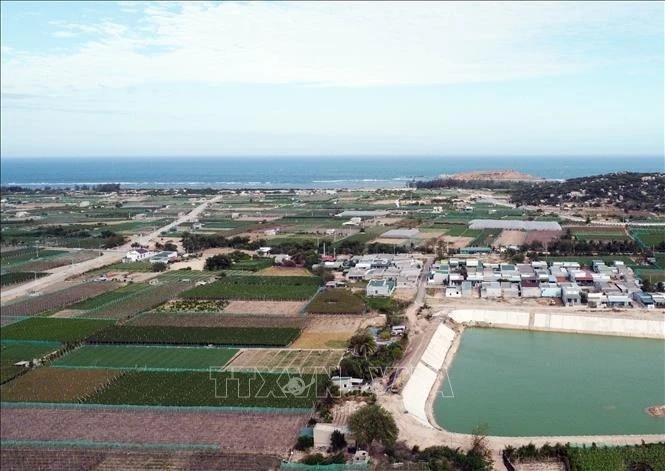
See more
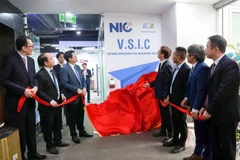
Vietnam Semiconductor Innovation Centre boots up in Hanoi
The launch of the VSIC shows a key commitment from FPT Corporation, NIC, and their partners to establish a sustainable semiconductor ecosystem in Vietnam, positioning the country as an attractive destination in this strategic industry.
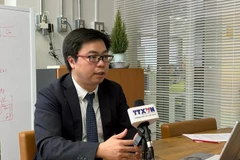
Resolution 57 to help Vietnam develop sustainably: Vietnamese intellectual in Japan
The Politburo’s Resolution 57-NQ/TW holds strategic significance as Vietnam needs to innovate its growth model, and improve labour productivity and competitiveness. It identifies science, technology, innovation and national digital transformation as the main driving force for socio-economic development, helping Vietnam escape the growth model based on cheap labour and resources, said Chairman of the Association of Vietnamese Intellectuals in Japan Dr. Le Duc Anh.
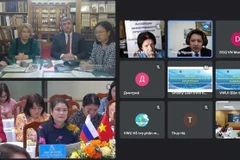
Symposium discusses ways to encourage women's engagement in science-technology
Tuyen stressed that the VWU has been carrying out practical activities to encourage women’s engagement in science and technology development, including promoting the establishment of the Vietnam Association for Intellectual Women, issuing a resolution on supporting women’s international integration by 2030, and launching initiatives like the Kovalevskaia Awards to encourage scientific research, innovation, startup and participation in digital economy and society among women.
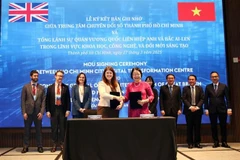
HCM City, UK strengthen partnership in digital transformation, innovation
Under the MoU, both sides will promote cooperation in research and innovation among policymakers, government agencies, research institutions, universities, and businesses to support digital transformation and drive technological advancements in the southern city.
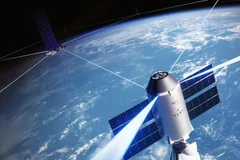
Pilot programme allows SpaceX to provide satellite Internet services in Vietnam
This pilot programme will not impose any restrictions on foreign investors regarding ownership percentages or capital contributions, according to recently-signed Decision No. 659/QD-TTg.
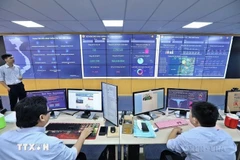
Politburo's science-tech resolution gives push to socio-economic development
Vietnam has set ambitious milestones, aiming to rank among the top three ASEAN countries in artificial intelligence (AI) research and development, digital competitiveness, and the e-government development index by 2030.
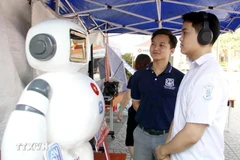
Russian expert hails Vietnam’s sci-tech development policy
Vietnam has chosen a right direction by setting the goal of making science – technology development, and innovation main driving forces for socio-economic development, said Dr. Grigory Trubnikov, Academician of the Russian Academy of Science and Director of the the Joint Institute for Nuclear Research (JINR) in Dubna (commonly known as Dubna Institute).

Vietnam harnesses AI to transform public services
The Government is accelerating AI application to reduce the paper workload and improve operation efficacy.

PM calls for nationwide digital literacy to empower citizens
PM Pham Minh Chinh tasked the Ministry of Science and Technology and the Ministry of Education and Training with developing a digital competency framework tailored to different groups, ensuring that civil servants, students, and workers alike have the necessary digital skills to work, learn, and engage safely and effectively in an increasingly digital world.
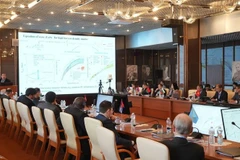
Vietnam, Russia hold promising scientific collaboration
Since 1982, when the Vietnam Academy of Science and Technology (VAST) became the official representative of Vietnam at JINR, the training of scientific personnel has been systematised, laying the foundation for the development of a high-quality scientific and technological workforce, playing a significant role in the country's renewal process.
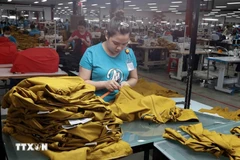
Vietnam poised for tech revolution: insights from Cambridge expert
Bang highlighted Vietnam’s advantages such as a young and tech-savvy population, steady economic growth, deep integration into global supply chains across multiple industries, and modern infrastructure like large airports and seaports.
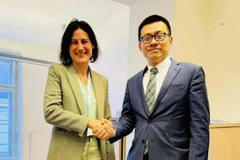
Vietnam, Austria explore cooperation in emerging technologies
Vietnam is highly interested in and wishes to strengthen partnerships with Austrian hi-tech companies, helping it make breakthrough in science, technology, and digital transformation, said Ambassador Vu Le Thai Hoang.
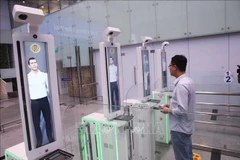
Preparations underway for biometrics, VNeID application at six airports
The biometric system is set for deployment at Tan Son Nhat between April and June, while at Noi Bai between March and September.
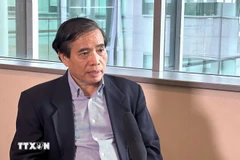
Expert taps Singapore’s model for Vietnam’s digital revolution
An expert from Singapore’s Lee Kuan Yew School of Public Policy has shared some of the city-state's experiences in how to promote science, technology, innovation, and digital transformation for national development.
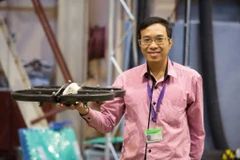
Vietnamese-Australian engineer takes agriculture sky high with drone technology
The aeronautical engineer described the Politburo’s resolution on breakthroughs in science, technology, innovation, and national digital transformation as a bright spot, removing obstacles for both domestic and foreign technological talent to make contributions to the homeland.
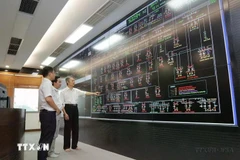
Resolution 57 shapes way for Vietnam to become science-technology leader
The ambitious targets outlined in the resolution are based on both Vietnam’s current capabilities and its future development potential. However, achieving these goals requires breakthrough approaches to implementing science, technology, innovation, and digital transformation.
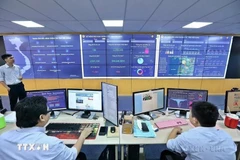
Expert sees resolution on national digital transformation as strategic move
The Politburo's Resolution 57-NQ/TW is will remove legal barriers to economic growth through science, technology, and digital transformation amidst the Fourth Industrial Revolution and the global digital economy.
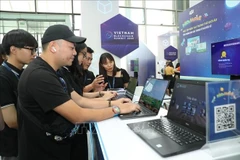
Scientists in UK lauds Vietnam’s resolution on science, technology
Evaluating the significance of Resolution 57 in the current development phase, the scientists agreed that investing in science and technology is the right direction to create momentum for the country’s breakthrough development.

Report flags gaps in Vietnam’s AI push in public sector
A report funded by UNDP and conducted by the Institute for Policy Studies and Media Development (IPS) found that 87% of AI-integrated public sector projects remain dormant, while 70% of surveyed businesses and organisations rated their AI efforts as minimally effective.
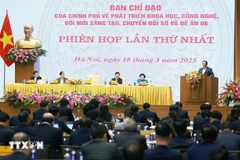
Prime Minister pushes for streamlined, data-driven government
Project 06 has shown tangible results, he said, highlighting the country has completed the issuance of 100% of chip-based citizen ID cards, activated over 61 million electronic identity accounts, and provided 40 utilities on the VNeID application. Online public services have been perfected, with 58 out of 76 essential online public services now available.
